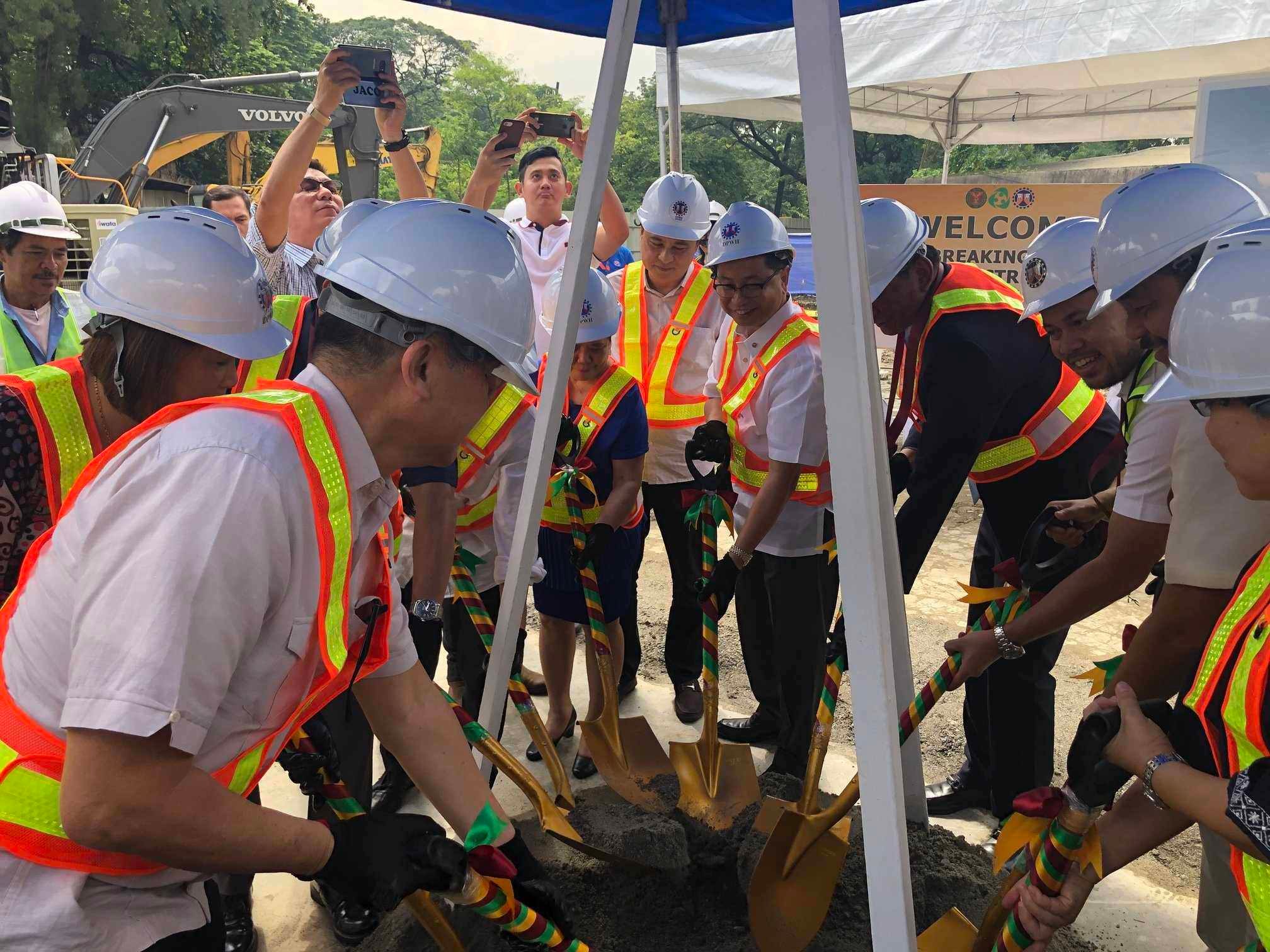SUMMARY
This is AI generated summarization, which may have errors. For context, always refer to the full article.

MANILA, Philippines– Hoping to make the nation better prepared for disasters, the University of the Philippines Resilience Institute (UPRI) will be amping up its efforts to complement science in disaster risk reduction initiatives with a new 10-story building that will house its research.
The new building will become UPRI’s center for research focused on climate change and disaster risk reduction and management, as it taps into the expertise of the whole UP system.
UPRI Executive Director Mahar Lagmay said a bigger space is needed since the whole UP system will be involved in understanding the different sectors involved in disaster preparedness and risk reduction such as agriculture, biodiversity, health, and education, among others.
“It’s the entire UP system that’s involved. The expertise is from different sectors. There’s a lot of UP Resilience Institute fellows that can help with the resilience efforts in the country but we need a home,” Lagmay told Rappler.
The new building, which will be equipped with the necessary facilities and technology, will be used to conduct several experiments and house discussions to help communities be more aware of the natural hazards that put them in danger.
“It will be a headquarters for knowledge systems on resilience to serve the entire country,” Lagmay said.
The new building is set to be finished by January 2021. With 10 floors, it will be the tallest building in UP Diliman.
Do more
During the groundbreaking ceremony on Wednesday, September 25, Public Works Secretary Mark Villar shared that the construction of the building will help in providing scientific data on climate change and disaster risk reduction and management for public use.
“In this age of climate change where natural calamities are rampant, it’s very important that we develop infrastructure, capability, and knowledge to combat the incoming problem that we have in regards to resiliency…. We need to stop depending on international research and make use of our own,” he added.
Relaunched in 2017, the UPRI was established as a proactive hub to empower Philippine communities through multidisciplinary actions towards resilience, with Project Operational Assessment of Hazards (NOAH) as its flagship program.
Project NOAH maintains a disaster management platform that provides data available for everyone to use. The services that Project NOAH provide disaster managers and the public include barangay-level hazard maps, near real-time weather information, storm surge advisories in affected localities, and apps and tools that make disaster preparation easier.
Among the efforts of the UPRI is to train local government units to form local climate change action plans and comprehensive land use plans with the community.
“When you do the plans, it cuts across all sectors. And UP has faculty that has expertise in all of these sectors…. When there are good plans for all our communities then the development can surge, not stopped or blocked by harmful events like typhoons, because the people are well-prepared,” Lagmay said.
Part of the institute’s coverage is Manila City, where they work with Mayor Isko Moreno in crafting plans to make the city disaster-resilient.
“There [are] new technologies that are now available and we’re going to apply it to make Manila, the capital of the Philippines, resilient. Hopefully, when the other mayors see what UP can do to help, maybe they can emulate and copy what was done in the capital city of Manila,” Lagmay said.
Albay 2nd District Representative Joey Salceda noted that the construction of a resilience institute building gives a robust environment that is impartial to politics and where studies on disaster risk reduction and climate action can thrive.
“Resilience starts from science. It therefore is a natural resident of academe. When you grow science for an academe, [it] is less politically influenced. And there you can expect greater positive results,” he said. – Rappler.com
Add a comment
How does this make you feel?
There are no comments yet. Add your comment to start the conversation.